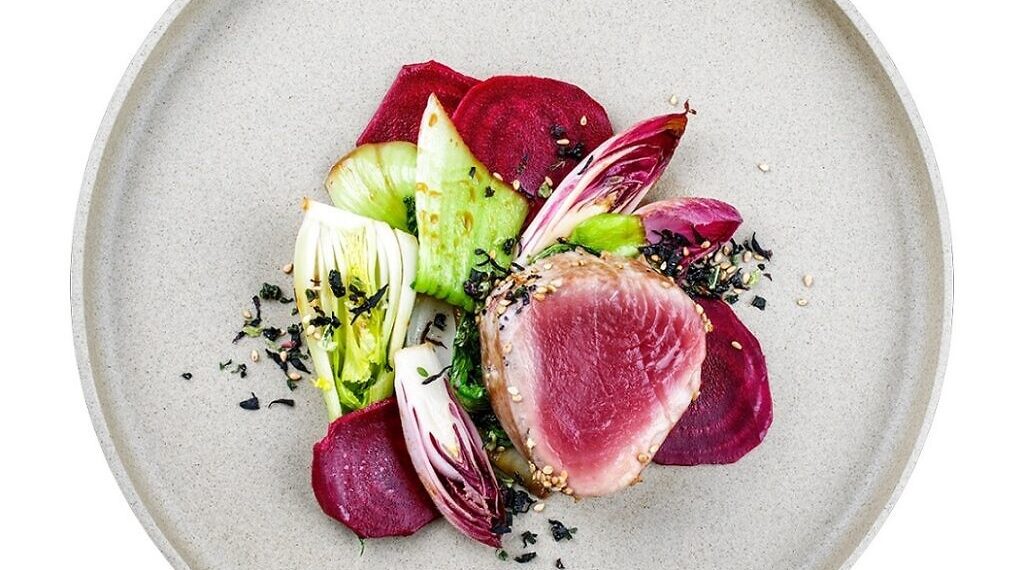Wanda Fish, a new Israeli food tech startup founded just a few months ago, is partnering with Tufts University for advanced research into the development of cultivated fish as a food item.
The company said on Monday that it was looking to tap into the research of Dr. David Kaplan, a professor of Biomedical Engineering at Tufts and an expert in the field of cellular agriculture (the production of animal-based products from cell cultures), who has developed intellectual property (IP) in fish cell cultivation. Wanda Fish’s agreement with Tufts gives the Israeli startup exclusive rights to the IP and a separate deal will support the professor’s research into cellular agriculture-based production of fish tissue.
Wanda Fish co-founder and CEO Dr. Daphna Heffetz told The Times of Israel via email that the company, set up late last year, recruited a strong R&D team to establish the “required infrastructure” as a young company, and that the agreements will help it “target… high-end products: thicker fish fillets with both native muscle and natural fat tissues originating directly from the animal” and “propel the development pace by having two R&D teams working in synergism.”
The Israeli startup’s R&D team is led by Dr. Malkiel Cohen, an expert in stem cells and genome engineering for the biomedical and agtech (agriculture tech) fields.
(Incidentally, Wanda Fish is not a reference to the 1988 hit “A Fish Called Wanda,” Heffetz said. “When looking into a unique name for the company, we came along with the title: Wandā, which is a wonder in Japanese. We felt that it is just right for us,” she explained.)
The agreement with Tufts “will significantly propel Wanda Fish’s strategies for producing sustainable, tasty, cultivated fish fillets,” the company said, as it looks to develop “a proprietary, GMO-free platform for producing cell-based finless fish fillets of varying species, without placing any burden on the ocean and the lifeforce within it.”

Wanda Fish co-founder and CEO Dr. Daphna Heffetz, second from right, and Dr. Malkiel Cohen, R&D director, with the rest of the team. (Courtesy)
Heffetz said the company’s technology for cultivated fish could be applied and adapted “to various fish species.”
“We are testing a few fish species both commercially and technology-wise. In the coming few months, I expect to be choosing the fish type, that will be our first product,” she said.
But the company has already made some headway in developing its first prototype of a fish fillet directly from fish cells, she noted.
“Our platform includes animal-free growing medium, know-how in producing native muscle and fat tissues and specially customized bioreactors that will give us the capacity to scale up production and eventually bring our cultured fish products to cost parity with conventionally fished counterparts,” said Heffetz.
“By integrating innovative proprietary applications from multiple disciplines, including cell culture, biotechnology, food tech, and culinary design, we will produce a versatile range of fish species to satisfy all preferences, at affordable prices, and with uncompromising quality,” said the CEO.
Heffetz is a biotech professional with over 20 years of experience, having served as a top executive at companies like PhytoTech Therapeutics, TransPharma Medical, Alon MedTech Ventures, and Savyon Diagnostics.
Kaplan explained in a company statement that Wanda Fish is starting “with a single, one-time sample of a real native fish muscle and fat tissues. We then pursue the replication of the biological growth of fish, with the nutritional attributes, including protein and omega-3 content, as well as the flavor and textural properties.”
“The results are clean, safe fish free of microplastics, mercury, or other chemical toxicities that are commonly found in some of the wild catch,” said Kaplan.
Marine biodiversity, said Heffetz, “is critical to the survival of people and our planet. Overfishing, as well as water pollution, is damaging the vast and vital ocean ecosystem. Many wild fish populations are sadly in decline.”
Alternative protein and cultivated fish
Wanda Fish is one of about 40 Israeli startups in the alternative protein sector, which saw growth of about 450 percent in 2021, according to the latest report by the Good Food Institute (GFI) Israel published this week.
The alternative protein sector is a subsegment of the food tech industry, which also includes nutrition, packaging, food safety, processing systems, and novel ingredients. It comprises plant-based substitutes for meat, dairy, and egg; cultured dairy, meat and seafood; insect proteins; and fermentation products and processes.
Market research firm IMARC Group reported that companies developing alternative fish and seafood products grew by 30 percent between 2017 and 2020, with further growth expected in the coming years as concerns over depleted supplies and overfishing increase, and more firms move from development to commercial launch.
Wanda Fish was formed with financial and technical support from The Kitchen FoodTech Hub, a startup incubator by the Strauss Group, together with the Israel Innovation Authority (IIA). The startup raised $3 million in a pre-seed funding round led by the Kitchen FoodTech Hub, with participation from CPT Capital, an investment firm with a record of backing food tech companies like Beyond Meat and Impossible Foods, as well as Israeli firms Peregrine Ventures, Pico Partners, and MOREVC (formerly known as Israel Cleantech Ventures).
Credit: Source link





















